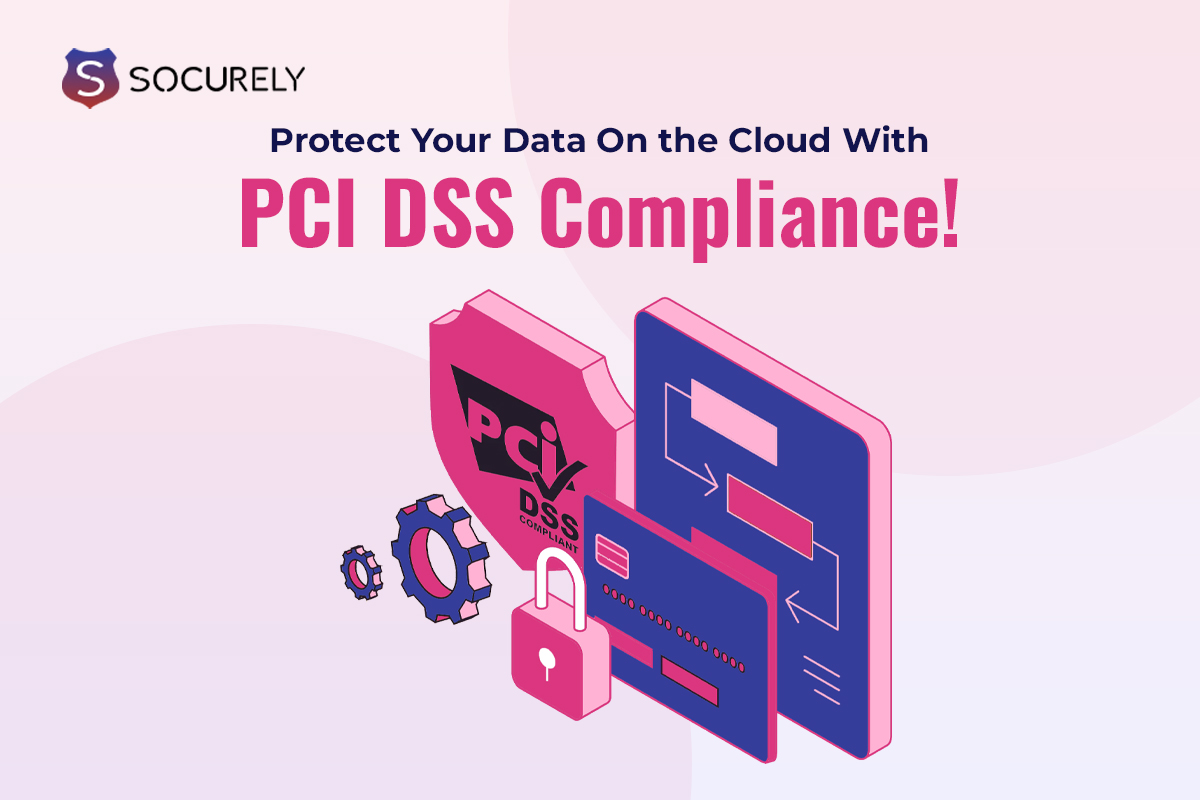As businesses move their operations to the cloud, the protection of customer data becomes a pressing concern. PCI DSS, developed by the Payment Card Industry Security Standards Council, was established to ensure that all companies processing, storing, or transmitting credit card information maintain a secure environment. In 2024, with cloud services becoming more complex and widespread, ensuring compliance with PCI DSS is a critical step in keeping sensitive data safe from cyber threats.
But why is PCI DSS so important when it comes to cloud data security? The answer lies in its rigorous set of security standards, which ensure that businesses and cloud service providers alike implement the necessary controls to safeguard cardholder data.
PCI DSS in Cloud Environments
Migrating to the cloud brings unparalleled benefits, but it also introduces a set of challenges, especially around data security and compliance. The cloud, by its very nature, allows for shared resources and multi-tenant infrastructures, which can raise concerns over who controls and secures the data.
In cloud environments, PCI DSS compliance is not just the responsibility of the cloud service provider (CSP); it also requires the business (merchant or service provider) to ensure that minimum security standards are correctly implemented. This shared responsibility model means that businesses must understand which aspects of their cloud infrastructure they are responsible for, such as data encryption, access controls, and monitoring, while the CSP manages the physical security and core infrastructure.
Hence, PCI Compliant cloud is the set of security controls that are mandatory for the merchants in credit card or online transactions.
How Does PCI DSS Ensure Cloud Data Safety?
PCI DSS outlines 12 key requirements that serve as a robust framework for data security in any environment and directly enhance cloud data safety:
Following A Secure Network-
To protect cloud data, the PCI DSS framework requires businesses to implement robust firewalls and security controls to prevent unauthorized access to their systems. In the cloud, this involves securing virtual networks and ensuring that cloud-based firewalls are properly configured to restrict access to sensitive data.
Cardholder Data Security-
PCI DSS mandates the encryption of cardholder data both at rest and in transit. Cloud environments must ensure that any sensitive information stored on cloud servers or transmitted over the network is encrypted using industry standards like TLS (Transport Layer Security) or AES-256 encryption. By ensuring end-to-end encryption, PCI DSS Compliance helps mitigate risks of data breaches in cloud environments.
Vulnerability Management Program-
Cloud environments are dynamic, and vulnerabilities can emerge as new updates and configurations are applied. PCI DSS Compliance requires organizations to regularly test and assess their systems for vulnerabilities, ensuring that cloud-based systems are regularly patched and kept up to date. This is crucial for preventing data breaches and maintaining the integrity of cloud-hosted data.
Strong Access Control Measures-
PCI DSS emphasizes role-based access controls (RBAC) and multi-factor authentication (MFA) to ensure that only authorized individuals have access to cardholder data. This is particularly important in cloud environments, where multiple users may access the system from different locations. By ensuring that access is limited to those with a legitimate need, businesses reduce the risk of unauthorized access to cloud-stored data.
Network Management-
Continuous monitoring and logging are essential for detecting suspicious activity in the cloud. PCI DSS Compliance requires businesses to implement logging mechanisms that track all access to cardholder data and other critical systems. These logs are essential for identifying unauthorized access attempts and responding to potential security incidents.
Information Security Policy-
PCI DSS Framework helps businesses to have a comprehensive information security policy in place. This policy must be updated to reflect the specific security challenges of the cloud, outlining the responsibilities of both the organization and the cloud service provider. By defining clear policies, businesses ensure that everyone involved understands the measures needed to secure cloud-hosted data.
Statistics- The Cloud Security Alliance (CSA) reports that organizations with PCI DSS-certified cloud infrastructures saw a 40% reduction in cyberattacks targeting payment data.
The Role of PCI Compliant In Cloud
One common misconception about PCI DSS compliance in the cloud is that it is entirely the responsibility of the cloud service provider. While CSPs are responsible for infrastructure security, businesses must take charge of their own data protection measures.
Most leading cloud service providers, such as Amazon Web Services (AWS), Microsoft Azure, and Google Cloud, offer PCI-compliant environments, but businesses must ensure they correctly configure their systems to comply with PCI DSS. This includes managing access controls, encryption, and monitoring systems.
CSPs will typically provide attestation of compliance for the infrastructure they manage, but businesses must still undergo their own PCI DSS audits to demonstrate that they are fully compliant.
What Are The Benefits of PCI DSS Compliance in the Cloud?
Achieving PCI DSS compliance offers a range of benefits beyond simply protecting cardholder data. Here are some key advantages:
- Enhanced Customer Trust: With compliance, businesses can demonstrate to customers that they are committed to protecting their payment information, fostering greater trust and loyalty.
- Reduced Risk of Fines: Non-compliance with PCI DSS can result in hefty fines from payment card networks. By maintaining compliance, businesses reduce the risk of facing penalties for data breaches.
- Improved Security Posture: PCI DSS requires the implementation of best practices for data security, which improves overall cloud security and resilience against attacks.
- Competitive Advantage: Businesses that achieve PCI DSS compliance can differentiate themselves in the market, attracting customers who prioritize data security.
Cost of PCI DSS Compliance in the Cloud
The cost of PCI DSS compliance in cloud environments can vary based on factors such as the size of the business, the complexity of the cloud infrastructure, and the level of security already in place. Costs typically include auditing fees, security technology investments, and ongoing compliance management.
Automate your PCI compliance journey with Socurely
Getting PCI compliant is crucial for companies that handle cardholder data. It can be difficult to comply with PCI’s more than a dozen security criteria and 300 strict security controls on your own, and it will take a lot of an organization’s valuable time and resources.
Socurely simplifies your PCI DSS journey as a leading authority in security compliance and cloud compliance, as certified by G2. By giving you comprehensive insight into security controls, automating various aspects of compliance, and making the deployment of security best practices simpler, the platform helps you remain ahead of compliance obligations.
Conclusion
As businesses continue to migrate to the cloud, ensuring the security of sensitive data is more critical than ever. PCI DSS compliance provides a comprehensive framework that businesses can rely on to protect their payment data in the cloud. By implementing PCI controls, companies not only safeguard their customers’ information but also enhance their overall security posture, reduce the risk of costly breaches, and build trust in an increasingly digital world.
If you’re looking to secure your cloud data and ensure PCI compliance, partnering with a trusted compliance provider like Socurely can simplify the process, providing you with the tools and expertise needed to protect your data in the cloud.
FAQ
What is PCI DSS, and why is it important for cloud security?
PCI DSS (Payment Card Industry Data Security Standard) is a set of security standards designed to protect cardholder data. For businesses using the cloud, PCI DSS ensures that payment information is stored, processed, and transmitted securely, reducing the risk of data breaches and unauthorized access.
How can PCI DSS compliance protect my business’s cloud data?
PCI DSS compliance helps safeguard cloud data by enforcing strict security measures such as encryption, access controls, and regular vulnerability assessments. These measures ensure that sensitive information is protected from cyber threats and data breaches in the cloud.
What are the key PCI DSS requirements for cloud providers?
Cloud providers must meet specific PCI DSS requirements, including maintaining a secure network, implementing strong access controls, encrypting sensitive data, and regularly monitoring and testing security systems. This ensures that any payment data stored in the cloud remains secure.
Does PCI DSS compliance guarantee 100% cloud data security?
While PCI DSS compliance significantly enhances cloud data security, it doesn’t guarantee 100% protection. It’s crucial to adopt additional security practices like real-time monitoring, incident response plans, and employee training to ensure robust data safety.
Can small businesses benefit from PCI DSS compliance in the cloud?
Yes, PCI DSS compliance is critical for businesses of all sizes. Small businesses are often targeted by cybercriminals, and by adhering to PCI DSS standards, they can protect their cloud data, reduce risks, and build customer trust, even with limited resources.







